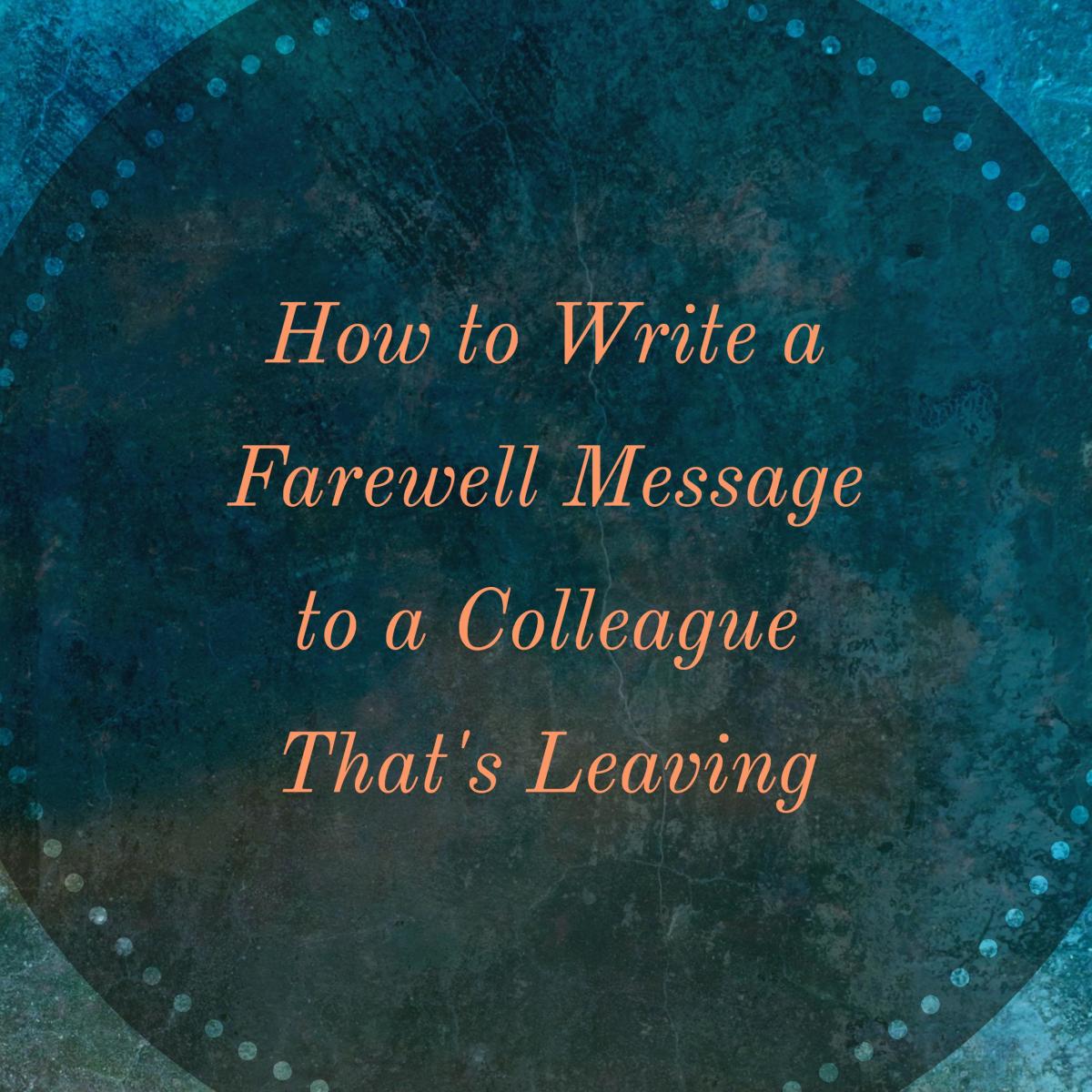Saying Goodbye with Grace: Crafting the Perfect Work Farewell Email Message
Remember that feeling when you received a thoughtful goodbye note from a favorite teacher or camp counselor? It likely warmed your heart and maybe even made you a little sad to see them go. Leaving a job can bring on a mix of emotions, but amidst the excitement of new beginnings, there's a certain sweetness in taking the time to say a proper goodbye. And while handwritten notes have their charm, in the digital age, a well-crafted work farewell email message is the perfect way to leave a lasting positive impression on colleagues.
Think about it - your work farewell email is more than just a formality. It's a chance to express gratitude, acknowledge the connections you've made, and leave the door open for future possibilities. Whether you've been at a company for two years or ten, whether you're moving on to a dream job or taking some time for yourself, a well-written farewell email is a gesture that people will remember.
But what makes a "good" goodbye email, anyway? It's not just about announcing your departure – it's about crafting a message that feels genuine and reflects your experiences. This isn't the time for a generic, mass-forwarded email. A truly impactful farewell email should resonate with your colleagues and leave them feeling appreciated.
Just like you wouldn't wear a ballgown to a backyard barbecue, the tone of your farewell email should match your workplace culture. If your office is more on the formal side, your email should reflect that professionalism. On the other hand, if your company culture is more relaxed, you have more freedom to be informal and inject a bit more personality into your message.
No matter the setting, a great farewell email should always convey gratitude, highlight positive memories, and express well wishes for the future. By putting a little thought into your words, you can make sure your final message resonates with your colleagues and leaves a lasting positive impression.
Advantages and Disadvantages of Sending a Work Farewell Email
While sending a work farewell email is generally considered good practice, it’s helpful to weigh the pros and cons to determine the best course of action for your specific situation.
| Advantages | Disadvantages |
|---|---|
| Reaches a wider audience within the company | May feel impersonal to close colleagues |
| Provides a written record of your farewell | Risk of misinterpretation of tone |
| Opportunity to share contact information and stay connected | Can be time-consuming to personalize for different recipients |
Best Practices for Writing a Memorable Work Farewell Email
Here are some tips to help you craft a farewell message that hits all the right notes:
- Keep it concise and positive. Your colleagues are busy, so respect their time by getting straight to the point and focusing on the positive aspects of your time at the company.
- Express your gratitude. Take the time to thank your colleagues and supervisors for the opportunities you've been given and the things you've learned.
- Share a brief, positive memory (optional). Did you have a particularly fun team-building experience or collaborate on a project that was especially rewarding? Sharing a quick anecdote can add a personal touch.
- Offer your assistance during the transition. If you're able, let your team know you're happy to help with the handover of your responsibilities.
- Proofread carefully! This is your final communication with colleagues, so make sure it's free of typos and grammatical errors.
Common Questions About Work Farewell Emails
Still have questions? We've got you covered:
- Should I mention the reason for my departure? This is completely optional. You can briefly state your reason (new opportunity, returning to school, etc.) or simply say you’re moving on to pursue other opportunities.
- When is the best time to send my farewell email? It's generally a good idea to send it on your last day or second-to-last day of work.
- Do I need to send separate emails to everyone? It depends on your company culture and relationships. For close colleagues and mentors, a personalized email is a nice touch. You can then send a general email to the wider team.
- Should I include my personal contact information? This is a personal preference. If you feel comfortable sharing your information, you can include it at the end of your email.
- What should I avoid mentioning in my farewell email? Avoid negativity or complaints about the company, colleagues, or your work. Keep it positive and professional.
- Can I use my work email address after I leave? Once you've left the company, you'll likely lose access to your work email. Be sure to update your contact information for any personal accounts or subscriptions you access through your work email.
- Should I send a physical farewell card? This is a thoughtful gesture, especially for close colleagues. You can also consider bringing in a small treat for your team on your last day.
- What if I'm leaving on bad terms? If you're leaving on bad terms, it's still important to maintain professionalism. Keep your email brief, polite, and focus on thanking your colleagues for their time.
Saying goodbye is never easy, but taking the time to write a thoughtful work farewell email message is a simple act of kindness that can leave a lasting positive impression. By following these tips and trusting your instincts, you can craft a message that feels authentic and heartfelt. Remember, this is your chance to express your gratitude, celebrate your accomplishments, and leave the door open for future connections.
Unlocking musics code what are musical notes for
Mastering boat trailer wheel torque your guide to safe trailering
Digital fort knox how secure are your documents














